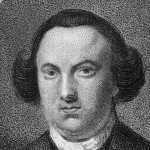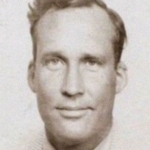When Israel came from Egypt’s coast,
And Goshen’s marshy plains,
And Jacob with his joyful host
From servitude and chains;
Then was it seen how much the Jews
Were holy in his sight,
And god did Israel’s kingdom choose
To manifest his might.
The sea beheld it, and with dread
Retreated to make way;
And Jordan to his fountain head
Ran backwards in dismay.
The mountains, like the rams that bound,
Exulted on their base;
Like lambs the little hills around
Skipt lightly from their place.
What is the cause, thou mighty sea,
That thou thyself should shun;
And Jordan, what is come to thee,
That thou should backward run?
Ye mountains that ye leaped so high
From off the solid rock,
Ye hills that ye should gambols try,
Like firstlings of the flock?
Earth, from the center to the sod
His fearful presence hail
The presence of Jeshurun’s God,
In whom our arms prevail.
Who beds of rocks in pools to stand
Can by his word compel,
And from the veiny flint command
The fountain and the well.













Comment form: